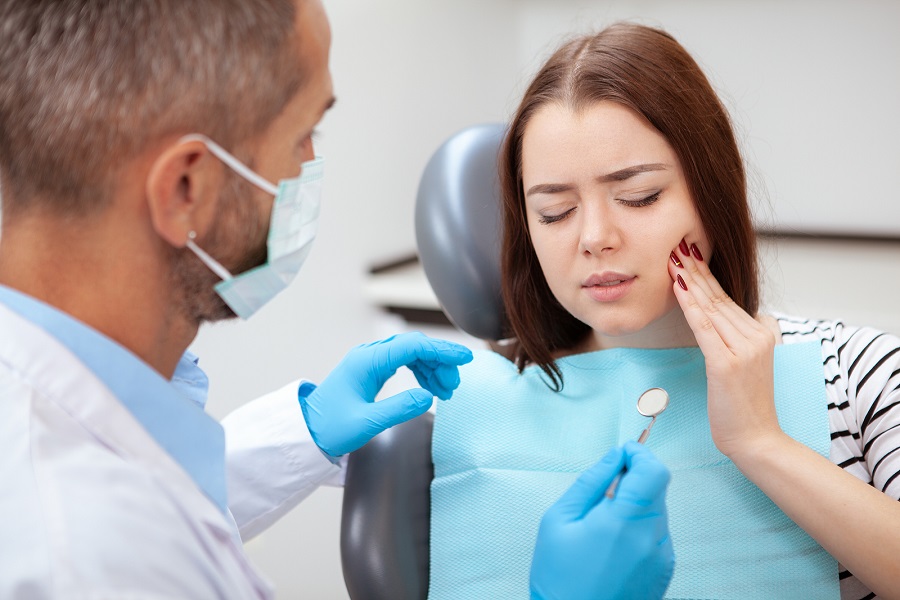Wisdom teeth, often referred to as third molars, typically make their entrance in late adolescence or early adulthood. While they once played a crucial role in our ancestors' diets—helping them chew coarse foods—they have become more of a nuisance for modern humans. With smaller jaws and softer diets, many people find that wisdom teeth don't fit well in their mouths. This mismatch can lead to complications that may require removal. Understanding the reasons behind wisdom tooth extractions is essential for anyone facing this common dental procedure in Austin, TX. Let's dive into the various factors that might necessitate saying goodbye to those pesky molars!
Reasons for wisdom tooth removal
Wisdom tooth removal is often necessary for several reasons.
- One primary concern is overcrowding in the mouth. As these teeth emerge, there may not be enough space to accommodate them, leading to misalignment.
- Another common reason involves impaction. When wisdom teeth grow at an angle or are trapped beneath the gum line, they can create pressure on adjacent teeth and cause pain.
- Additionally, some people face an increased risk of infection due to partially erupted wisdom teeth. Food particles and bacteria can easily get trapped around these areas, resulting in cavities or gum disease.
- Preventative measures play a significant role. Many dentists recommend removal before problems arise as a proactive step toward maintaining oral health. This approach helps avoid complications later in life and ensures a healthier smile overall.
Impacted wisdom teeth and potential problems
Impacted wisdom teeth can lead to significant dental issues. When these third molars don't have enough space to emerge properly, they may become trapped within the jawbone or gums. This condition often causes discomfort and swelling.
As impacted wisdom teeth push against neighboring teeth, they can create a misalignment in your smile. The pressure might lead to tooth decay or damage in adjacent molars as well.
In some cases, cysts can form around the impacted tooth, potentially harming surrounding bone and tissues. Infections are another risk; bacteria thrive in areas that are difficult to clean.
Ignoring symptoms of impacted wisdom teeth could result in long-term complications. Regular dental check-ups play a crucial role in identifying these issues early on before they escalate into more serious problems.
Common symptoms of problematic wisdom teeth
Wisdom teeth can cause a range of issues as they emerge. One of the first signs is pain in the back of your mouth. This discomfort often grows more intense with time.
Swelling around the gums is another common symptom. You may notice redness or tenderness, indicating inflammation in that area.
Some people experience difficulty opening their mouths fully due to stiffness and soreness near the jaw joint. This can make eating and speaking uncomfortable.
In certain cases, wisdom teeth might lead to bad breath or an unpleasant taste in your mouth caused by trapped food particles or infection.
Headaches are also reported by some individuals who have problematic wisdom teeth. These headaches typically stem from tension resulting from misalignment or pressure on surrounding teeth. Contact us to learn more.
The extraction process and what to expect
The extraction of wisdom teeth is a straightforward procedure, typically carried out under local anesthesia or sedation. Your dentist will start by numbing the area to ensure you feel no pain during the process.
You may hear sounds like drilling or pressure as they work. This can be unsettling, but remember that it's normal. The dentist will carefully remove any gum tissue covering the tooth and break it into smaller pieces if needed for easier extraction.
Once removed, stitches may be necessary to aid healing. You'll likely spend some time in recovery before heading home with instructions on aftercare.
It's important not to rush this stage; give yourself time to rest afterward. Understanding what happens during your appointment can ease anxiety and help you prepare for the days ahead while recovering from wisdom teeth extractions in Austin, TX.
Aftercare and recovery tips
After your wisdom teeth extractions in Austin, TX, proper aftercare is essential for a smooth recovery.
- Start by biting down gently on the gauze provided to manage bleeding. It's normal to see some blood initially.
- Stick to soft foods during the first few days. Mashed potatoes, yogurt, and smoothies are good choices. Avoid anything crunchy or spicy that might irritate the extraction sites.
- Stay hydrated but steer clear of straws for at least a week; sucking can dislodge blood clots and prolong healing time.
- Pain management is key. Follow your dentist's instructions about any prescribed medication or over-the-counter pain relievers. Ice packs can also help reduce swelling—apply them intermittently for 20-minute intervals.
- Keep your mouth clean, but avoid vigorous rinsing right away. Gentle saltwater rinses can be introduced after 24 hours to promote healing without disturbing the area too much.
Conclusion
Wisdom teeth, often referred to as third molars, are the last set of teeth that typically emerge in your late teens or early twenties. While they once served a purpose for our ancestors who needed extra grinding power for tough foods, today's diets and dental hygiene have rendered them less essential. As such, many people find themselves facing wisdom tooth extractions in Austin, TX.
Several reasons can lead to the decision to remove these teeth. One major factor is overcrowding. In many cases, there simply isn't enough space in the jaw to accommodate these additional molars. This can lead to misalignment of other teeth and may require orthodontic adjustments later on.
Another significant reason for removal is impaction. Impacted wisdom teeth occur when they don't fully break through the gum line or grow at an angle that traps them against adjacent teeth. This situation can create various problems, including pain, swelling, and infection.
Symptoms indicating problematic wisdom teeth might include persistent discomfort in the back of your mouth or difficulty opening your jaw wide enough to eat comfortably. You may also notice swelling around your gums or even bad breath resulting from food particles trapped under swollen tissue.
If you're facing extraction surgery, knowing what to expect can ease anxiety about the process. The procedure generally involves local anesthesia with sedation options available depending on patient preference and the complexity of extraction required by each individual case.
Post-extraction care plays a crucial role in ensuring proper healing after surgery. Ice packs help reduce swelling, while soft foods should be consumed initially as chewing could irritate sensitive areas where extractions take place.
The path forward usually includes following up with your dentist if complications arise—though most recoveries go smoothly given proper aftercare measures are taken seriously.
Deciding whether or not wisdom tooth removal is necessary requires careful consideration and consultation with dental professionals familiar with specific health histories and oral conditions unique to individuals seeking treatment.
The Dental Centre, located in Austin, is equipped with expert dentists and modern amenities. Call us at (512) 892-7800 and schedule an appointment with the dentist to know more about wisdom teeth extraction.
Visit Our Office
Austin, TX
4301 W WILLIAM CANNON DR Building B #240, Austin, TX 78749
Email: care@dentalcentreaustin.com
Book NowOffice Hours
- MON9:00 am-1:00 pm, 2:00 pm-5:00 pm
- TUE9:00 am-1:00 pm, 2:00 pm-6:00 pm
- WED9:00 am-1:00 pm, 2:00 pm-5:00 pm
- THU9:00 am-1:00 pm, 2:00 pm-6:00 pm
- FRIBy appointments only
- SAT - SUNClosed
4301 W WILLIAM CANNON DR Building B #240,
Austin, TX, 78749
Phone: (512) 892-7800Text Us: (512) 892-7800








